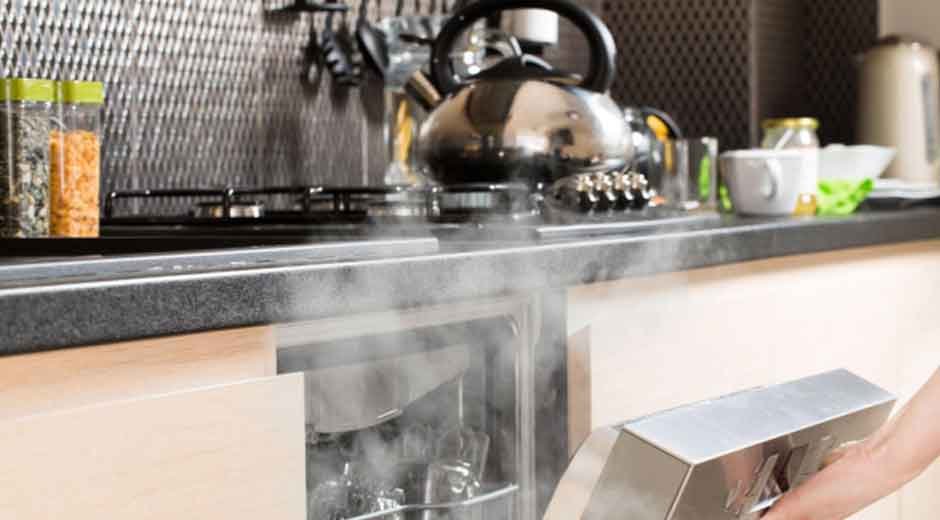Skip to the good bit
ToggleUnderstanding hot water usage in households is crucial for managing energy consumption effectively. With many families unaware of their actual hot water requirements, inefficiencies often lead to higher energy bills. Efficient use of hot water not only lowers utility expenses but also contributes to environmental preservation by reducing energy consumption. Many households grapple with inaccurate estimations, which can disrupt daily activities and lead to undue stress. This article offers practical tips to better estimate and manage hot water use, covering aspects like household consumption, heater specifications, monitoring techniques, and reduction strategies.
Understanding Your Household’s Hot Water Consumption
A multitude of factors play into a household’s hot water consumption. Family size is a primary determinant; naturally, larger families will likely consume more hot water. Daily routines also affect consumption patterns. For instance, a household with regular evening showers might experience peak hot water usage around those times.
Moreover, the use of appliances such as dishwashers and washing machines significantly impacts water usage. Dishwashers consume less water compared to hand washing dishes, but they still add to the overall hot water usage. Meanwhile, washing machines—depending on settings and load size—can account for a considerable portion of hot water consumption.
Climate and regional variations further influence hot water needs. In colder regions, households might utilise more hot water for heating purposes, unlike warmer areas where usage might be more stable year-round. Interestingly, statistics reveal that an average Australian family uses about 22% of its energy on heating water.
Assessing Your Hot Water Heater Specifications
The type and size of a water heater can dramatically affect efficiency and consumption. Storage water heaters maintain a tank of heated water, ready for use, which can lead to energy losses if the tank is too large or improperly insulated. In contrast, tankless water heaters heat water on demand, offering improved efficiency for many households.
Energy efficiency ratings provide insights into a heater’s performance. Higher-rated models often translate to lower operational costs, as they utilise energy more efficiently. Consumers should evaluate whether their current water heater aligns with their household’s usage patterns and efficiency expectations.
Checking if your water heater meets household needs involves frequently revisiting energy bills to identify potential spikes and understanding whether current usage justifies the tank capacity. Consulting with a professional can help determine if a newer, more efficient model might serve better.
Techniques for Monitoring Hot Water Usage
In today’s digital age, tools and technologies for tracking hot water usage are plentiful. Smart meters offer a detailed breakdown of consumption patterns, providing real-time insights. Accompanied by dedicated apps, these devices help households monitor and adjust their usage efficiently.
Regular checks on water usage can alert families to unusual increases that may indicate leaks or inefficiencies. By consistently monitoring consumption, households can better predict and calm potential issues, ultimately leading to savings on bills.
Notably, households that have adopted monitoring tools report streamlined utility management and reduced unnecessary expenses. For instance, one family found that after installing a smart meter, they could reduce their water heater’s temperature setting, saving them hundreds annually.
Simple Ways to Reduce Hot Water Consumption
Reducing hot water usage is a step towards sustainability and cost savings. Installing low-flow fixtures can dramatically decrease water flow without compromising functionality, leading to reduced hot water demand. Using cold water detergents in laundry can achieve clean results while cutting hot water use during washes.
Behavioural changes play a crucial role as well. Opting for shorter showers and only washing full loads in dishwashers and washing machines can yield significant savings. Moreover, regular maintenance, such as insulating hot water pipes and ensuring the heater’s thermostat is set correctly, prevents heat loss and optimises efficiency.
Choosing the Right Hot Water System for Your Needs
Assessing whether to stick with an existing system or upgrade depends on various factors. Understanding the current system’s dynamics and evaluating emerging needs is key. Storage water systems may suffice for some, while others might need the efficiency of a tankless system.
Each system comes with its own set of advantages and limitations. Storage tanks offer reliability but can be less efficient. Tankless systems, on the other hand, provide efficiency at a potential upfront cost. When choosing a new system, consider cost, efficiency, capacity, and any emerging technologies that might offer long-term benefits.
Innovations in the hot water industry constantly introduce features that enhance user experience and energy management. From solar-assisted heaters to geothermal systems, options continue to expand, promising both greener solutions and economic savings.
Summing Up and Moving Forward
In conclusion, accurately estimating and managing hot water usage is not only beneficial for reducing utility bills but also fosters environmental consciousness. By understanding the factors influencing hot water consumption, evaluating your current system’s efficiency, monitoring usage, and implementing reduction strategies, households can effectively control their hot water use. Through conscious efforts, your family won’t be left wondering, “Not sure how much hot water your family really needs?” but will instead step into a more energy-efficient future. It’s time to embrace sustainable practices and make smart choices that benefit both your wallet and the planet.







